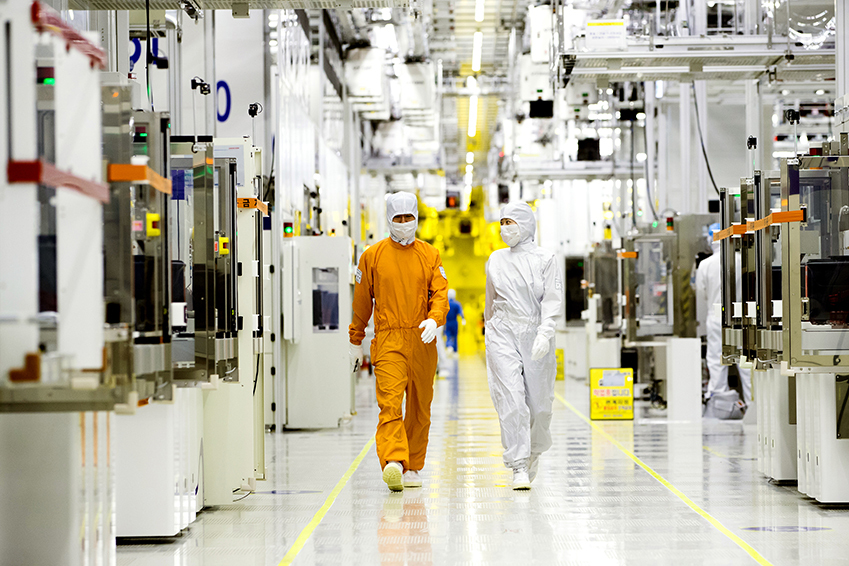Korean firms brace for worse situation after Japan’s delisting
By Song Su-hyunPublished : Aug. 2, 2019 - 14:41
The top-tier tech companies in South Korea, including Samsung Electronics and SK hynix, have their hearts in the mouth after Japan voted Friday to remove the country from its whitelist of countries that enjoy preferential trade treatment.
The semiconductor industry sees the current situation as an “unprecedented emergency” that could directly hit productivity, especially now during a market downturn.
The semiconductor industry sees the current situation as an “unprecedented emergency” that could directly hit productivity, especially now during a market downturn.

“The delisting decision is making matters even worse for the chipmaking industry,” said an official with a Korea-based chipmaker. “We are enhancing monitoring of the situation in order to prepare for possible restrictions on more material supplies.”
Korea will be taken off Japan’s whitelist of 27 countries that receive preferential trade treatment on Aug. 28. After that, exports of as many as 857 industrial parts and materials to Korea will have to be scrutinized by the government. The approval process can take up to 90 days.
Korean chipmakers predict that the current restrictions on two hi-tech materials -- hydrogen fluoride and photoresists -- will be expanded to include other materials.
Materials that might be subject to the export restrictions include wafers, photomasks and photo-lithography equipment.
“The company will cautiously watch to see what else could be restricted and maximize the capabilities of the procurement team in order to prevent any difficulty in production,” said an official with another chipmaker.
The lithium-ion battery industry is also paying keen attention, as some of the materials used to make electric vehicle batteries are imported from Japan.
“A significant portion of cover materials for pouch-type EV batteries (is sourced) from Japan,” said an official with a battery maker. “But the company is preparing sufficiently (to ensure) stable supplies of the material from other countries.”
The other key battery components, including separators, come from a diverse range of suppliers throughout the world, the official said as he dismissed concerns about the impact of the Japanese decision on the battery industry.
Japan is expected to announce on Wednesday the additional items that will need to be screened before they can be exported to Korea.
By Song Su-hyun (song@heraldcorp.com)







![[Graphic News] More Koreans say they plan long-distance trips this year](http://res.heraldm.com/phpwas/restmb_idxmake.php?idx=644&simg=/content/image/2024/04/17/20240417050828_0.gif&u=)
![[KH Explains] Hyundai's full hybrid edge to pay off amid slow transition to pure EVs](http://res.heraldm.com/phpwas/restmb_idxmake.php?idx=644&simg=/content/image/2024/04/18/20240418050645_0.jpg&u=20240419100350)





![[From the Scene] Monks, Buddhists hail return of remains of Buddhas](http://res.heraldm.com/phpwas/restmb_idxmake.php?idx=652&simg=/content/image/2024/04/19/20240419050617_0.jpg&u=20240419175937)

![[KH Explains] Hyundai's full hybrid edge to pay off amid slow transition to pure EVs](http://res.heraldm.com/phpwas/restmb_idxmake.php?idx=652&simg=/content/image/2024/04/18/20240418050645_0.jpg&u=20240419100350)

![[Today’s K-pop] Illit drops debut single remix](http://res.heraldm.com/phpwas/restmb_idxmake.php?idx=642&simg=/content/image/2024/04/19/20240419050612_0.jpg&u=)